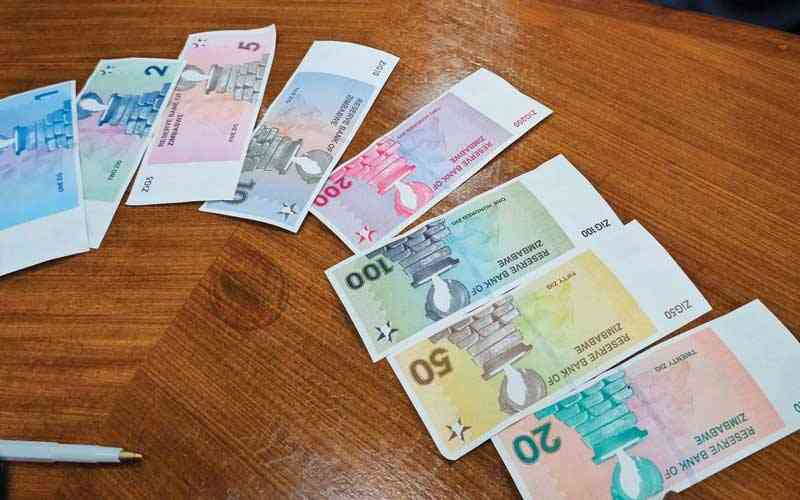
THIS year’s national budget became law in Januaryafter the Parliament passed the 2024 Finance Act and the 2024 Appropriation Act.
The former contains the proposals of the government for the levy of new taxes, modification of the existing tax structure, or continuance with the existing structure beyond the period approved by Parliament, while the latter appropriates government funds to specific government ministries, departments, and agencies (MDAs) and various government-funded programmes.
This first column for 2024 starts with a relook into the 2024 budget, the instituted amendments, and their implications.
2024 budget implications
As alluded to earlier, the Parliament listened to the public concerns about the misgivings of the 2024 executive budget proposals, leading to some amendments. However, the whipping system being followed in Parliament stifles constructive debate, as shown by many regressive tax proposals that were left intact despite public resentment. Some of the passed regressive proposals are briefly discussed below.
Social protection programmes: The final 2024 budget failed to increase budget votes for social protection programmes significantly. Only 4,12% of approved budget funds were earmarked for flagship social protection programmes like the Basic Education Assistance Module (Beam), child protection services, and support for older people and persons with disabilities.
With the Treasury’s track record of late disbursements of funds, the value of these funds, which are already inadequate to provide cushion to vulnerable groups, will likely be eroded by inflation.
Crowd-out informal traders from supply chains: The informal traders are now restricted from purchasing goods and services directly from manufacturers without possessing valid tax clearance certificates and value-added tax (VAT) registration.
- Zimsec reopens 2021 exams registration
- Zimsec reopens 2021 exams registration
- Beam has failed: Artuz
- Child rights activists want Ncube to prioritise education in 2023 budget
Keep Reading
Although the VAT registration threshold was reduced from US$40 000 to US$25 000, the amount remains beyond the reach of many informal traders and small businesses. This policy move is detached from reality as the economy has primarily become informal, with about 70% of economic activity estimated to occur in the informal economy.
Also, this policy stance will significantly hurt local manufacturers as an influx of cheap imports will substitute local products.
Paltry tax-free threshold: The Treasury reviewed the monthly tax-free threshold from ZW$500 000 to ZW$750 000. Although this will provide some relief to low-income earners, the tax-free amount is grossly inadequate given the context of persisting Zimbabwe dollar (ZWL) depreciation and ZWL inflation.
For instance, with market prices benchmarked at the parallel exchange rates, ZW$750,000 is equivalent to about US$50 at the current week’s average parallel exchange rate of ZWL/USD 15 000. I submit that the tax-free threshold must be indexed to the poverty datum line (PDL), which is informed by the all-items consumer price index (CPI).
VAT zero ratings and exemptions: VAT zero ratings are now limited to exports, while VAT exemptions are only limited to selected goods like medicines and medical services. All other goods and services, including basics, are now standard-rated.
This policy is disproportionately affecting vulnerable members of society (the poor majority), who generally have a high marginal propensity to consume. The levying of VAT has caused a significant increase in market prices of basic goods; hence, households are now spending more of their earnings on food (current consumption), leaving little for saving and investment (future consumption).
Covid-19 and cushioning allowance: The civil servants’ US$300 Covid-19 allowance has become part of the pensionable emoluments – salary component. While this move has increased the real value of salaries for civil servants, it is now subjected to tax, further reducing disposable incomes for already lowly-paid government workers.
Strategic fuel reserve (SFR) levy: The SFR levy was increased by US$0,03 and US$0,05 per litre of diesel and petrol, respectively.
The SFR adjustment and an increase in toll gates and fees are pushing public transportation costs upwards. The policy stance has also ballooned the cost of doing business, increasing the prices of final goods and subduing business hiring (more unemployment).
Treasury U-turn on its 2024 budget
The regressive budget proposals came into effect in January 2024, and consumers witnessed significant hikes in the shelf prices of many essential goods, such as bread, rice, cooking oil, meat, and beverages.
By removing the VAT zero-rating of basic commodities, the Treasury intended to increase tax revenue collections.However, as warned by economists, this policy move disproportionately impacted the poor majority through increases in market prices.
Economic theory posits that poor people have a high marginal propensity to consume (MPC); that is, they spend almost all of their incomes on current consumption with little savings for the future.
As such, the increase in the prices of essential goods significantly reduces their disposable incomes. It also reduces vulnerable groups' access to food in a year when food availability is expected to fall as the country battles El Nino weather conditions.
More so, high domestic prices encourage the smuggling of cheap imports, which can have dire consequences on the health of ordinary citizens (unregulated importation of GMOs), sustainability of domestic industry (stiff competition from cheap imports), and lower government tax revenue collections (smuggling is a form of tax evasion).
Cognisant of the preceding, the Treasury made an abrupt U-turn, reversing some of these proposals as indicated in Table 1.
The adjustments made by the Treasury have vindicated my earlier reservations about how the 2024 budget process was conducted.
The process was hardly participatory; for instance, public hearings were done virtually, crowding out views of marginalised and vulnerable groups. Had authorities provided adequate time for budget consultations with critical stakeholders, including business, consumers, labour, and civil society, some of these anti-people and anti-growth proposals in the 2024 budget would not have been passed and become law.
While I commend the Treasury for being spectacularly flexible in correcting this anomaly and protecting poor citizens who faced the brunt of price hikes, I still believe these policy reversals/adjustments must be tabled before Parliament for debate and vote.
Similarly, at least further amendments are required to make the 2024 budget pro-poor and pro-growth.
Parting shot
There are many non-tax and non-inflationary strategies that the Treasury can employ in broadening the revenue generation base to support sustained and inclusive economic growth and development.
These include, among others, fighting corruption and impunity by strengthening existing legal and regulatory frameworks, capacitating accountability and oversight institutions, implementing e-procurement and value-for-money processes, enforcement performance contracts for top government officials, and adopting advanced technologies at ports of entry and exits such as surveillance drones and drug-detecting machines.
There is also a need to develop, operationalise, and fully implement the National Formalisation Strategy to simplify business registration procedures and processes, implement progressive taxation for MSMEs, automate tax payment and taxpayer education, establish codes of conduct for the employment of workers in the informal economy, improve labour inspection and new approaches to formalisation, and ensure tremendous respect for the law, including extending labour protection to unprotected sectors.
In addition, the government must fully diversify the economy to reduce revenue risk by supporting value addition and beneficiation, particularly agro and mineral value chains.
Sibanda is an economic analyst and researcher. He writes in his personal capacity. — [email protected] or Twitter: @bravon96






